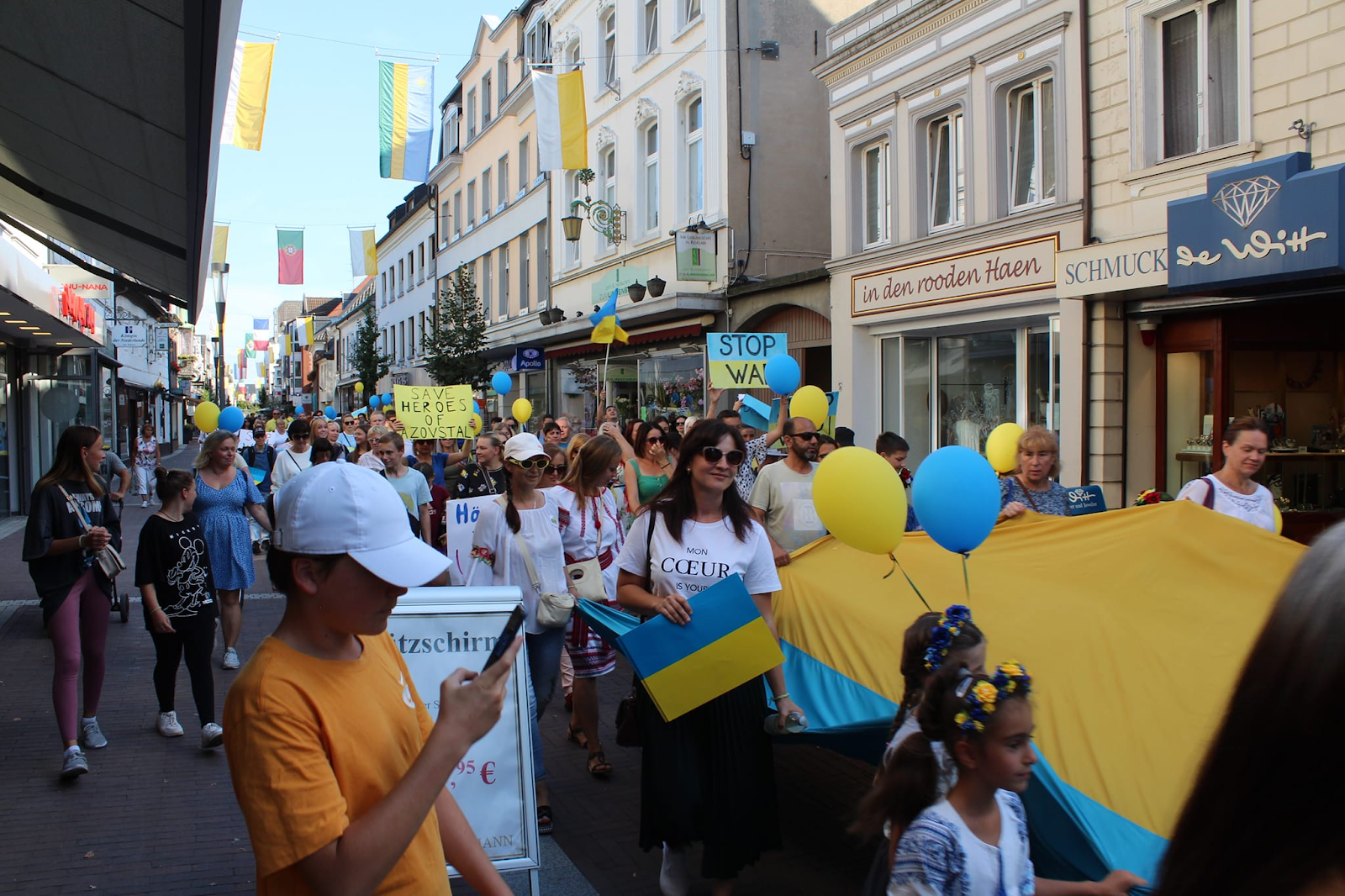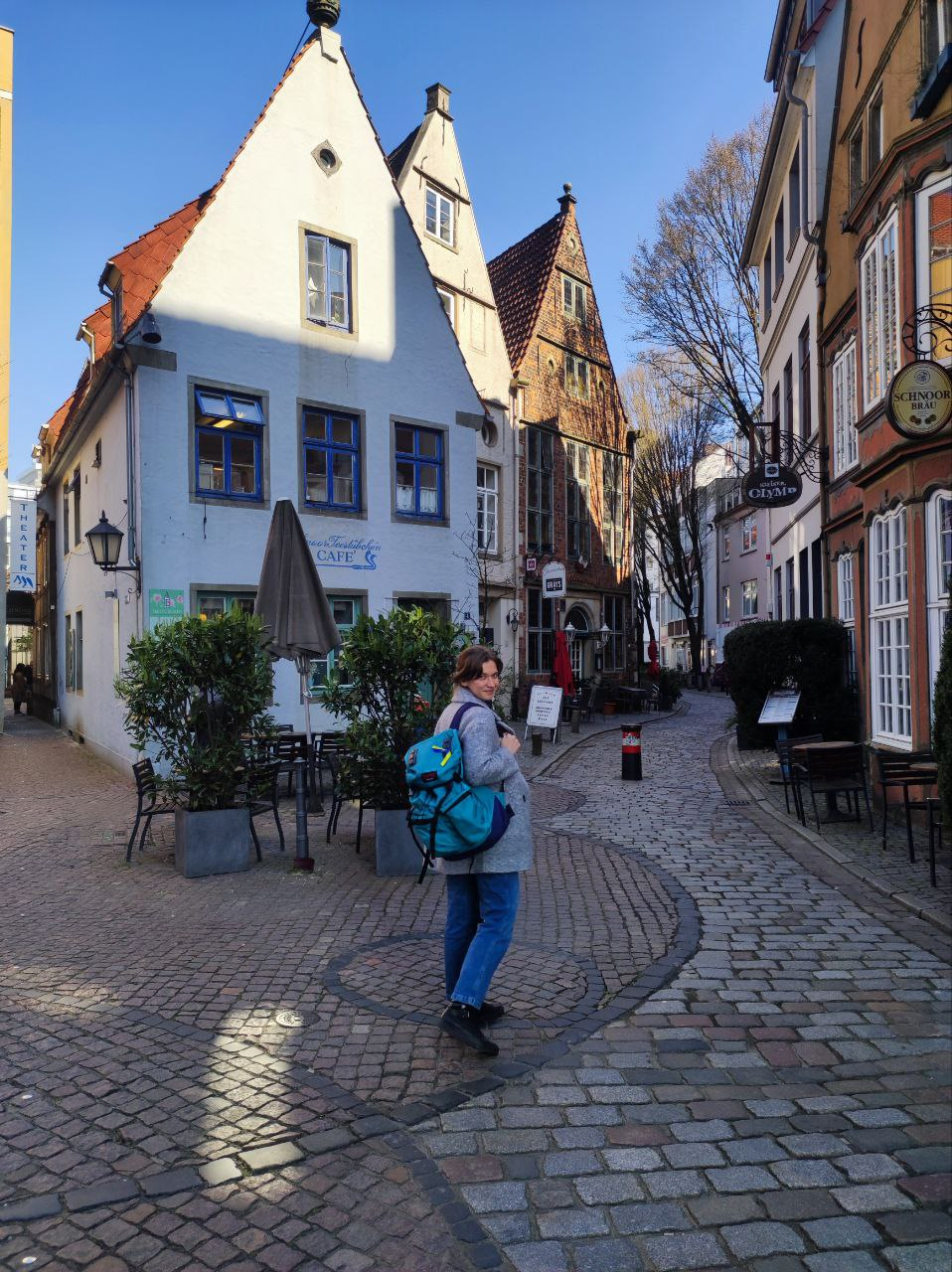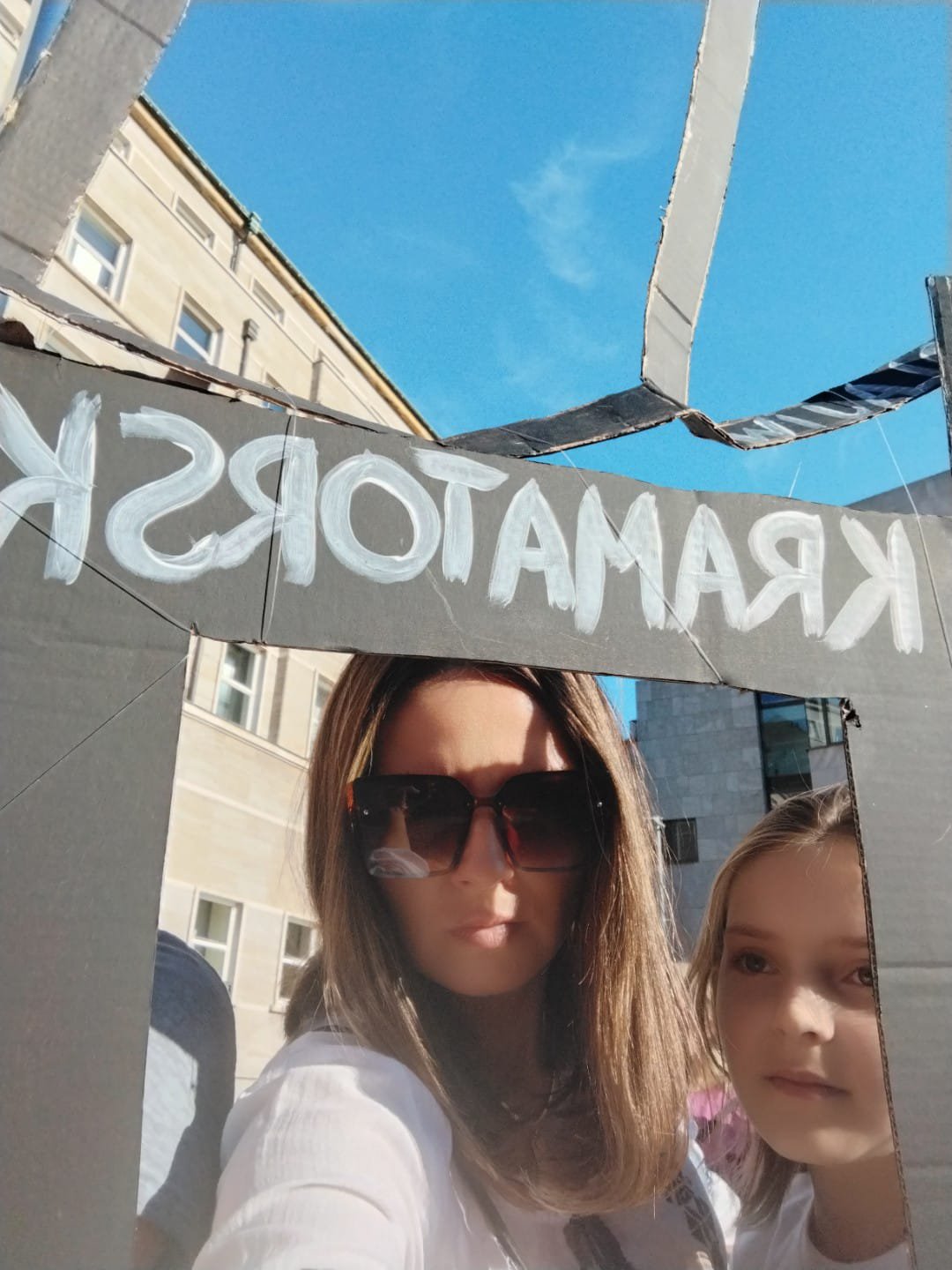Why Ukrainians in Germany often communicate in Russian and what can be done to change this habit
After the start of the full-scale invasion of Russia, Ukrainians are actively switching from speaking Russian to Ukrainian. This is visible in the information space and at the everyday level - many have acquaintances who started speaking Ukrainian last year. For example, a third of the 67,000 surveyed users of the "Kyiv Digital" application answered that they started to communicate in Ukrainian during this period.
Translated by Dmitry Lytov & Mike Lytov
Читати українською
The trend towards Ukrainization also affected the mostly Russian-speaking eastern regions, which suffer the most from the war and terror of the Russians. Many immigrants from the east and south of Ukraine, who ended up in the western regions, also began to communicate in Ukrainian more often - out of their own desire and inspired by the Ukrainian-speaking environment.
On the other hand, Ukrainians who left abroad during the beginning of the war are behind on this trend. Some even stop trying to speak Ukrainian when they find themselves in a Russian-speaking environment in Europe.
We talked to Ukrainian refugees in Germany about their language environment in this country and asked how to inspire Ukrainians to communicate in their native language.
It is worth noting that Ukrainian refugees abroad often complain that they have no other choice as to go to, for example, Russian-speaking doctors in Germany, because they do not know German at a sufficient level, and the number of local Ukrainian-speaking services is scarce.
But the question is not about vital services, but everyday communication with compatriots who perfectly understand Ukrainian and can start speaking it themselves at any time. If only they want to.
Everything starts from childhood
Iryna Soroka was born in Zaporizhzhia and grew up in a Russian-speaking environment. She was brought up according to the Soviet ideological standards. Residents of the western regions of Ukraine were called "Banderites" in the family, and Ukrainian was regarded as a “villagers’ language”.
At the age of 24, the girl moved to Kyiv, but she continued to speak Russian, like everyone around her.
"It was only at my second job in Kyiv that I first started regularly hearing literary Ukrainian from a colleague," Iryna recalls. “This girl's mother was a Ukrainian language teacher. Then I became a little interested in the history of Ukraine, politics, and also, thanks to my travels, I understood the gulf between Ukrainians from different regions.”
After the Revolution of Dignity, Iryna decided to switch to Ukrainian. It took some time for her to start communicating freely. In 2014, she and her husband (who also spoke Russian before the Maidan) had a daughter, and they started talking to her in Ukrainian, she watched cartoons in Ukrainian and learned to read Ukrainian books.
"My husband and I continued to communicate in Russian for some time, it was difficult to switch immediately," says Soroka, "but our daughter talked in pure Ukrainian and now knows the language better than I do."
After the start of the Great War, Iryna and her daughter temporarily left for Germany. She settled in a town on the border with the Netherlands. This is a small town where many refugees from Ukraine live. And almost all of them are Russian-speaking, mostly from the eastern regions.
- Ukrainian refugees create local group chats in every settlement - our chat is 90% Russian-speaking, - says Iryna.

She speaks Ukrainian with all Ukrainians, even Russian-speaking ones. She says she tried to inspire her new acquaintances abroad to switch to Ukrainian, but they refused:
“Some try to switch to Ukrainian in conversations with me. It is difficult for them, they speak with slurred words, but they try. But they are a minority. Most of them speak Russian and that’s it. I notice that they simply have no desire to start communicating in Ukrainian. But her daughter managed to Ukrainianize her new friend, who switched to Ukrainian even at home. They play together, sing Jerry Heil’s songs,” says Iryna.
Time, practice, support
Anna Lynok, who left for Germany, used to communicate in Russian in her everyday life until February 24. After the full-scale invasion, she tries to communicate more often in Ukrainian, but she also mentions her mostly Russian-speaking environment.
"Our home library was always filled with Russian poets and writers," Anna recalls. “All my circle of communication since childhood was Russian-speaking. And the teachers stopped speaking Ukrainian as soon as the lesson ended. It was only at the university that I began to understand how important it is to communicate in my native language. And the great war was the last straw that made me realize this.”
Anna started running her social network pages in Ukrainian and switching to her native language in conversations with friends. But she admits that changing her language habit is difficult, especially in everyday communication. And her environment is still mostly Russian-speaking.
“Ukrainian refugees in Germany are often helped by Russian-speaking repatriates of the previous immigration waves who left the USSR many years ago. They are actively and sincerely involved in support. But the language issue is not so acute for them, so we often communicate with each other in Russian. I clearly understand that the transition from Russian to Ukrainian requires time, practice and support. We have motivation!”

The language of identity
Psychologist Yaroslava Popovych says that about a third of her clients abroad have decided to switch to Ukrainian. They explain to her that it is important for them to be distinguished from Russians abroad and identified as Ukrainians.
On the other hand, other Russian-speaking customers also try to preserve their identity - and that is why they remain Russian-speaking.
"They think that they will change their personality if they change their language," explained Popovych. “Some say that they feel pressure to switch to Ukrainian. And this pressure causes resistance.”
The beginning of the formation of the human "I" and self-awareness begins with the first words of the child, explains the psychologist. If a child hears Russian from their parents, they begin to identify themselves with this language. In this same language, a person begins to hear their thoughts.
The younger the child, the easier it is for them to change the habit of thinking in a certain language. But it is difficult for adults to stop speaking the language with which they have identified themselves all their lives.
“A person now has to translate all thoughts into another language. This can cause discomfort and resistance. It arises both inside a person and from outside, from their environment, which is not used to hearing a certain language from you.”
The psychologist we spoke with also talks about motivation as a driver of personal Ukrainization. The very desire to switch to Ukrainian in everyday communication helps to overcome internal and external resistance. On the other hand, weak motivation only makes doubts stronger.
“Sometimes people only have enough internal strength to change the language of communication - especially those who have left the occupied territories and war zones,” says the expert. “But people with strong motivation are always a minority in any business. And for those who are not motivated enough, the environment, support groups, and language clubs help.”
In Ukraine, such external emotional support is more tangible than abroad, which is natural. This is because in the homeland, Ukrainian is the state language, the language of education and the language in which all vital services are available. But that is not the only reason.
Russian-speaking environment
If a person has weak motivation, the environment will play a decisive role in choosing their language of communication.
Olha Kolesnyk was born in Kramatorsk, and all her surroundings from childhood were Russian-speaking. Although she studied at a Ukrainian gymnasium, she switched to speaking Russian during break time. Olha studied and knew the Ukrainian language, but did not use it in everyday life.
In March 2022, she and her daughter left for Lviv, to visit relatives.
"We have been there many times before - to visit," says Olha. “Relatives are Ukrainian-speaking, and we constantly communicated with them in Ukrainian.”

Later, Olha and her daughter moved to Germany. There she found herself surrounded by Russian-speaking refugees and immediately switched to Russian herself.
“Here in Germany, I attend language courses, and meet both Russian-speaking and Ukrainian-speaking Ukrainians. I speak the language in which I am addressed. My daughter and I speak Russian and a little German. It is a bit difficult for me to speak Ukrainian constantly, there is no daily practice. And if I need to say something quickly without thinking, I will say it in Russian.”
But Olha mentions that if most of the people around her spoke Ukrainian, she would have switched too.
We are Ukrainian ambassadors
If you want to start speaking Ukrainian, but your environment is completely Russian-speaking, you can find like-minded people in various free online and offline projects.
The Ministry of Culture and Information Policy has created a platform where many such resources are collected, as well as mobile applications and guides that will help you learn and improve your Ukrainian language.
You can join language clubs, where there are friendly communities that will support the transition to Ukrainian – a good example of a circle of such communities is the Yedyni (“The United Ones”) motivational project. You can read here how it works in different cities of Ukraine. There are even conversation clubs for Ukrainians abroad: in Lublin, Warsaw, Rotterdam, Vilnius and Prague. Ukrainians in other cities can also join chat clubs online, on Telegram.
Thanks to such speaking clubs, you can find the same kind of support that Yaroslava Popovych mentioned. The Yedyni initiative also offers participants of its free monthly course psychological support in the transition to Ukrainian.
“Ukrainians abroad are ambassadors of Ukraine. Whether we’re coming on vacation, or we’re being forced to go there because of the war,” says Nataliya Fedechko, co-founder of the Yedyni project. “Foreigners distinguish Ukrainian from Russian and may treat Ukrainians and Russians differently. Your language identifies you as someone who suffered from the war, or someone who brought this war to Ukraine.”
This material was prepared within the framework of the project "Urgent support of the EU for civil society", implemented by ISAR Unity with the financial support of the European Union. Its content is solely the responsibility of Texty.org.ua and does not necessarily reflect the position of the European Union.

